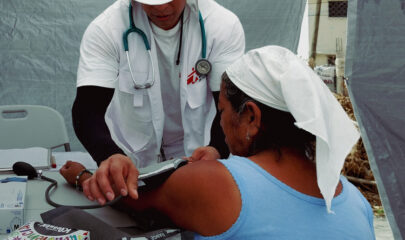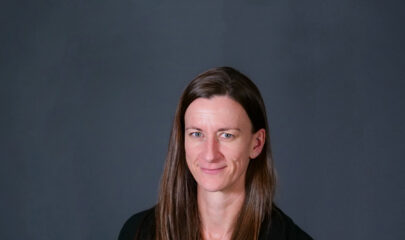“Life here is hard, and we are displaced by flooding every year. We have to spend months on the side of the road to escape the floods...It’s been like this every year for six years, and every year, the farms are destroyed.”
- Mary Ajok, MSF community volunteer, Abyei, South Sudan.
Across the globe, climate change is exacerbating health risks by causing more frequent and extreme weather events, expanding the reach and spread of infectious diseases and increasing the threat of malnutrition crises. Doctors Without Borders/Médecins Sans Frontières (MSF) is actively responding to these challenges in many of the places where we work.
In Chad, MSF scaled up projects in 2023 to respond to the surge in malnutrition cases – at least partly driven by recent floods and droughts. In Myanmar and Bangladesh, a severe tropical cyclone, Mocha, wreaked havoc on several communities last year, leading MSF to prioritize activities to prevent the spread of waterborne diseases, especially among Rohingya people living in the region and in displacement camps. Our teams also responded to multiple simultaneous cholera outbreaks – a disease known to be climate-sensitive – in the Americas, Africa and Asia.
ADDING A CLIMATE LENS TO HEALTHCARE
To help our teams adapt and prepare to meet the needs of people affected by climate change, MSF has established an initiative called Humanitarian Action on Climate and Environment (HACE). Its primary goals include developing climate services such as weather forecasting or seasonal outlooks tailored to MSF’s operational needs, creating a climate adaptation community of practice within MSF and supporting climate adaptation-related research within the organization.
“We are witnessing increasing health needs caused directly and indirectly by climate change,” says Léo Lysandre Tremblay, HACE lead. “The climate is becoming warmer, of course, but also less predictable. We don’t know what the future holds. Humanitarian organizations, including MSF, need to add a climate lens to everything we do.”
Since its launch, HACE has been supporting MSF activities in several countries, including Haiti, Honduras, Madagascar, Mozambique, Myanmar and South Sudan. It provides MSF staff with tools and information to prepare for – and mitigate when possible – health risks posed by climate events. This support includes seasonal climate briefings, tropical cyclone early warning and forecasting as well as flood and heat warnings.
The team is also contributing to MSF’s on- going climate-related research, including a malaria anticipation project in South Sudan and research on heat-induced illnesses.
Want to know more? Dive into our knowledge hub and discover how we’re making a difference, from fresh insights for the curious public to in-depth initiatives for our dedicated staff.
Visit climatehub.msf.org


